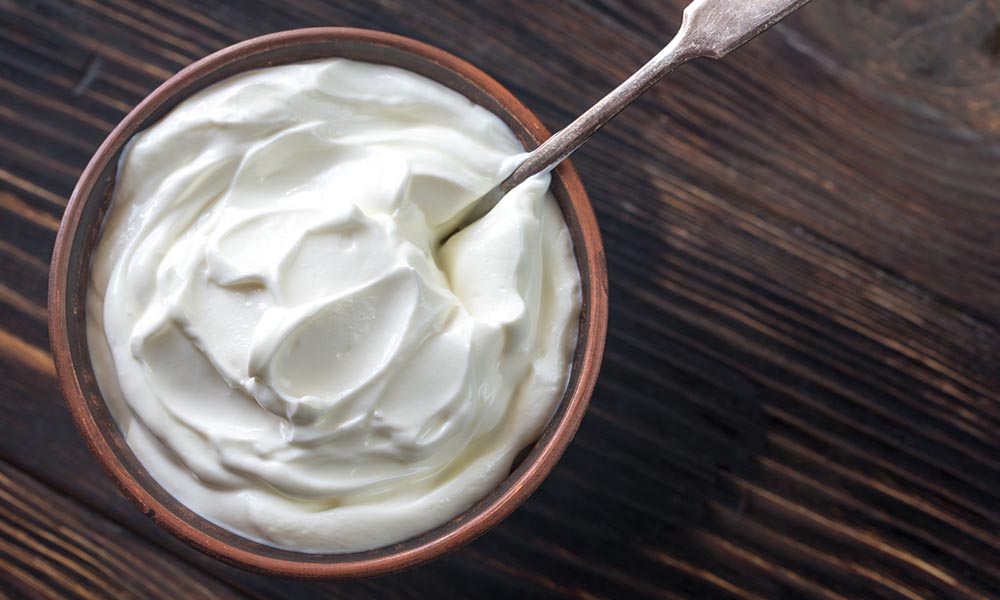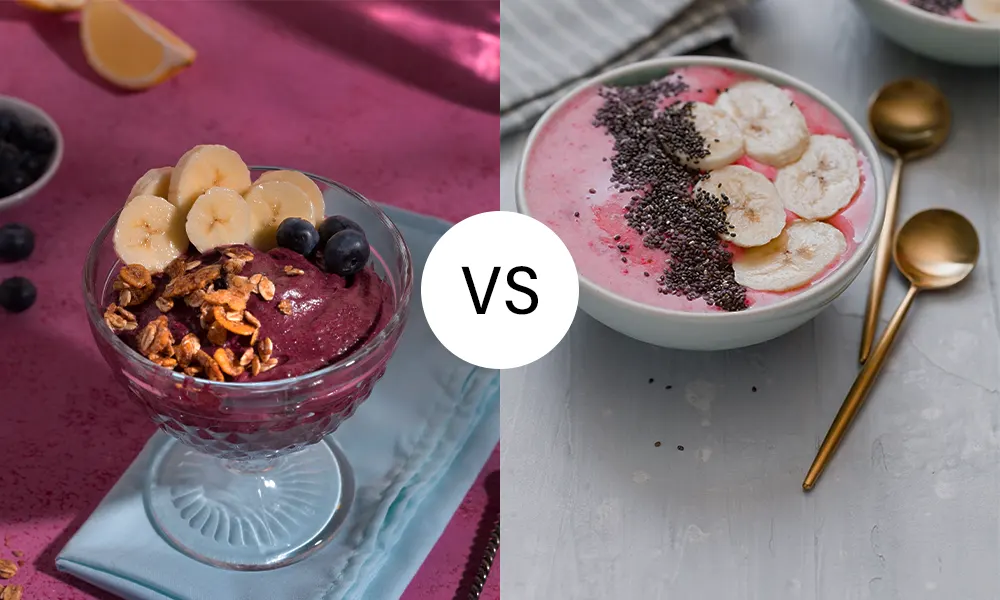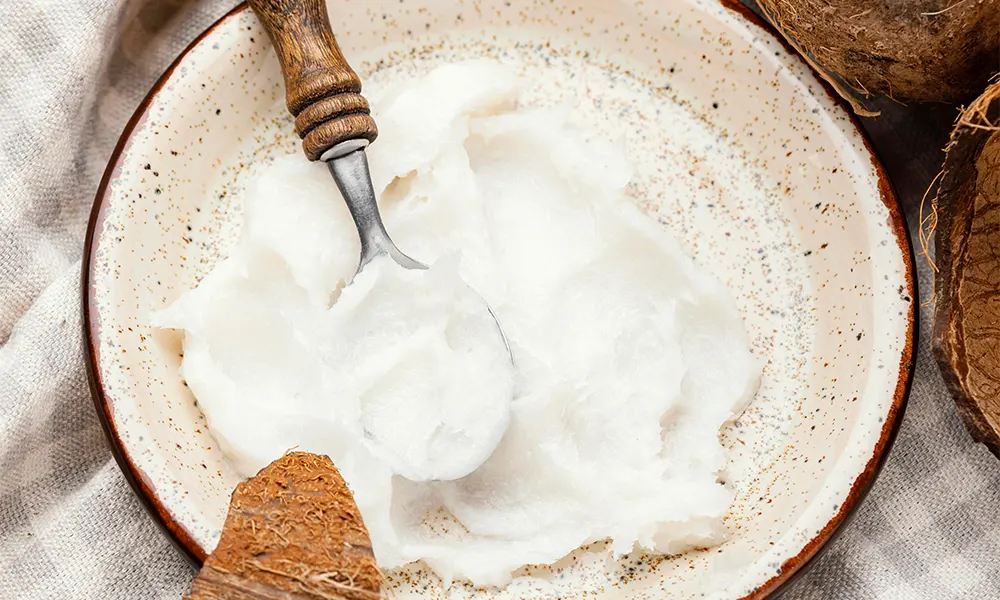Trying to cut dairy out of your diet? It’s not as straightforward as it seems, especially when it comes to popular foods like yogurt. One question often asked is: Is Greek yogurt dairy-free? The short answer? No. Greek yogurt is made from cow’s milk, putting it firmly in the dairy category.
This presents challenges for those with dairy allergies, lactose intolerance, or those following vegan diets. But don’t worry this blog doesn’t stop at explaining why Greek yogurt contains dairy. We’ll explore a variety of delicious, nutritious dairy-free alternatives to ensure you never miss out on that creamy texture and tangy flavour.
Is Greek Yogurt Dairy-Free? Unpacking the Truth
Simply put, Greek yogurt is not dairy-free. Its unique creamy texture and tangy taste come directly from its dairy base, typically cow’s milk. The production process involves straining out the liquid whey, leaving behind a thicker, protein-rich product. While this process enhances its texture and reduces lactose levels compared to regular yogurt, Greek yogurt still contains dairy.
For those with dairy allergies, lactose intolerance, or vegan preferences, this means Greek yogurt is off the menu. Understanding its dairy content is the first step in finding suitable alternatives.
Understanding Dairy Intolerances and Allergies
Before diving into the alternatives, let’s clarify the distinction between dairy allergies and lactose intolerance:
- Dairy Allergies: A dairy allergy is an immune response to proteins found in milk. Symptoms can range from mild, such as skin rashes, to severe, including anaphylaxis. People with dairy allergies must avoid all dairy products, including Greek yogurt.
- Lactose Intolerance: Lactose intolerance occurs when the body lacks the enzyme lactase, which is necessary to digest lactose (the sugar in milk). This condition leads to digestive discomfort, including bloating, gas, and diarrhoea. While some lactose-intolerant individuals can tolerate small amounts of Greek yogurt due to its lower lactose levels, many prefer to avoid it altogether.
Both conditions highlight the need for reliable dairy-free alternatives.
Delicious Dairy-Free Alternatives to Greek Yogurt
For those steering clear of dairy, there’s a range of plant-based yogurt options that mimic Greek yogurt’s creaminess and versatility. Here are some standout choices:
Coconut Yogurt: A Tropical Delight
Coconut yogurt is a popular choice, offering a naturally sweet and slightly coconutty flavour. Its creamy texture makes it a great substitute for Greek yogurt in desserts, breakfast bowls, and smoothies. When selecting coconut yogurt, opt for unsweetened varieties to avoid added sugars.
Soy Yogurt: High in Protein
Soy yogurt is a fantastic source of plant-based protein, rivalling the protein content of Greek yogurt. Its neutral flavour makes it versatile for both sweet and savoury recipes. Ensure the brand you choose is fortified with calcium and vitamin D for added nutritional benefits.
Almond Yogurt: Nutty and Light
Almond yogurt offers a subtly nutty flavour and a smooth texture. While it’s generally lower in calories, its protein content is typically less than soy-based options. This yogurt works wonderfully in recipes that benefit from a hint of nuttiness.
Cashew Yogurt: Rich and Luxurious
Cashew yogurt is prized for its decadently creamy texture. Its subtle, nutty flavour is ideal for indulgent dishes like desserts, creamy sauces, or smoothies. Many cashew yogurt brands also focus on minimal processing and natural ingredients.
Oat Yogurt: A Filling Option
Oat yogurt is a hearty, dairy-free alternative gaining traction. Its thick consistency and mild flavour make it a versatile addition to breakfast parfaits and savoury dips. Look for brands with fortified nutrients to enhance its overall value.
Nutritional Considerations: Dairy vs Dairy-Free Options
While dairy-free yogurts are excellent substitutes, their nutritional profiles can differ significantly from traditional Greek yogurt:
- Protein: Greek yogurt is renowned for its high protein content, which supports muscle health and keeps you fuller for longer. Among dairy-free options, soy yogurt generally comes closest in protein levels.
- Calcium: Many dairy-free yogurts are fortified with calcium, but the levels can vary. Always check the label to ensure you’re meeting your dietary needs.
- Added Sugars: Some dairy-free yogurts contain higher amounts of added sugars to enhance flavour. Opt for unsweetened varieties whenever possible.
By being mindful of these differences, you can select a dairy-free yogurt that fits your nutritional requirements.
Cooking with Dairy-Free Yogurt: Tips and Recipes
Dairy-free yogurt can seamlessly replace Greek yogurt in most recipes. Here are some ideas to get you started:
- Breakfast Bowls: Layer dairy-free yogurt with granola, fresh fruit, and nuts for a wholesome start to your day.
- Smoothies: Blend dairy-free yogurt with fruits, leafy greens, and a splash of almond milk for a creamy, nutrient-packed smoothie.
- Dips and Spreads: Mix dairy-free yogurt with herbs, garlic, and lemon juice for a tangy, dairy-free tzatziki.
- Baking: Use dairy-free yogurt to add moisture and richness to cakes, muffins, and bread. Adjust liquid ingredients as needed.
Experimenting with different alternatives will help you find the perfect fit for your favourite recipes.
Wrapping Up
So, is Greek yogurt dairy-free? The answer is clear: it’s not. However, with the wide variety of dairy-free yogurt options available today, you don’t have to miss out on creamy, tangy goodness. Whether you’re avoiding dairy due to allergies, intolerance, or personal preference, there’s a perfect alternative waiting for you.
Take the time to explore coconut, soy, almond, cashew, and oat yogurts to find the one that suits your taste buds and nutritional needs. Remember to read labels carefully to ensure the product aligns with your dietary requirements.
For more expert tips and advice on dairy-free living, reach out to Yo Hayo. We’re here to support you in making informed choices for a healthier, happier lifestyle. Contact Us Today!
FAQs
-
Is Greek yogurt lactose-free?
No, Greek yogurt is not completely lactose-free. While the straining process does reduce the lactose content, it doesn’t eliminate it entirely. People with lactose intolerance may still experience symptoms like bloating, gas, or digestive discomfort. Some individuals with mild lactose intolerance might tolerate Greek yogurt better than other dairy products due to the lower lactose content, but it’s not a guaranteed solution. For those who need a completely lactose-free option, plant-based alternatives such as soy, almond, coconut, or oat yogurt are ideal choices, providing a similar texture and taste without the lactose.
-
What is the best dairy-free alternative to Greek yogurt?
The best dairy-free alternative to Greek yogurt varies based on personal preferences and dietary needs. Coconut yogurt is creamy with a subtle coconut flavour, making it ideal for desserts or smoothies. Soy yogurt is high in protein and has a neutral taste, suitable for both sweet and savoury dishes. Almond yogurt has a light, nutty flavour and is often lower in calories. For a rich, luxurious texture, cashew yogurt is a great choice. Oat yogurt is becoming increasingly popular due to its hearty texture and versatility. Always check labels for added sugars or fortification to match your nutritional needs.
-
Can dairy-free yogurt replace Greek yogurt in recipes?
Yes, dairy-free yogurt can often replace Greek yogurt in most recipes, but some adjustments may be needed depending on the consistency and flavour of the alternative. For example, coconut yogurt works wonderfully in smoothies, parfaits, and desserts, but may impart a coconut flavour. Soy and oat yogurts are versatile for savoury recipes like dressings, sauces, and curries. If a recipe calls for thickening, some dairy-free yogurts may need a thickening agent. In baking, the liquid content may need adjustment depending on the type of yogurt. Experiment with different plant-based options to find the perfect fit for your recipe.
-
Are dairy-free yogurts suitable for children?
Dairy-free yogurts can be a great option for children, especially for those with dairy allergies or lactose intolerance. Many dairy-free alternatives are fortified with essential nutrients like calcium, vitamin D, and B12, which are crucial for a child’s growth and bone health. However, it’s important to choose a product that is low in added sugars and artificial ingredients. Some plant-based yogurts may have lower protein content, so it’s essential to balance your child’s overall diet with other protein-rich foods. Always consult with a paediatrician to ensure the chosen yogurt is nutritionally appropriate for your child’s needs.
-
Is dairy-free yogurt healthier than Greek yogurt?
Dairy-free yogurt isn’t necessarily healthier than Greek yogurt, but it may be a better option for those with dairy allergies, lactose intolerance, or those following a plant-based diet. Greek yogurt is rich in protein and calcium, which are important for bone health. Many dairy-free yogurts are fortified with similar nutrients, but the nutritional profile varies between brands. Some plant-based yogurts contain more sugars or unhealthy fats than Greek yogurt, so it’s essential to read the labels. The choice between the two depends on individual health goals, dietary restrictions, and taste preferences, making both options viable depending on your needs.





